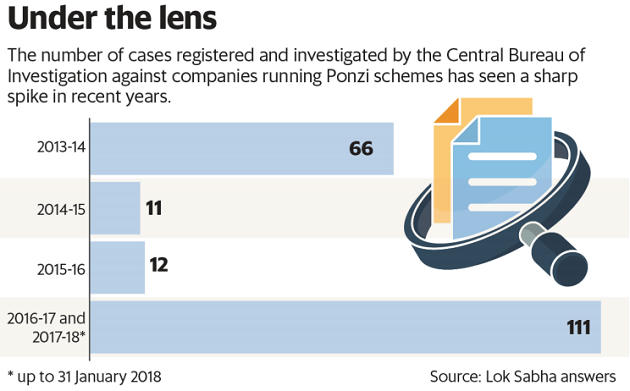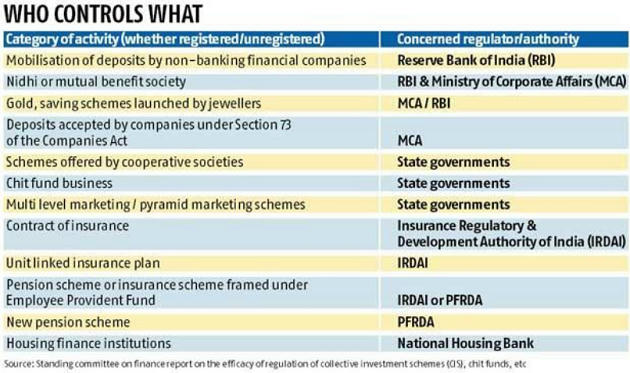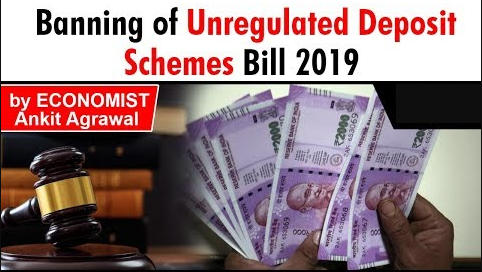Table of Contents

It also seeks to amend three laws:-
- The Reserve Bank of India Act, 1934
- The Securities and Exchange Board of India Act, 1992
- The Multi-State Co-operative Societies Act, 2002.
WHY THERE IS A NEED FOR SUCH A BILL?
- Ponzi schemes are banned under the Prize Chit and Money Circulation (Banning) Act, 1978.
- Though it is a Central Act but the respective State government are the enforcement agency of this law.
- In 2016 The Securities and Exchange Board of India (SEBI) told the Supreme Court that banned Ponzi schemes do not fall under its regulatory purview.
PURPOSE OF THE BILL
- The bill aims to protect investors from fraudulent investment schemes, such as Ponzi schemes.
- Thus it provides for a mechanism to ban unregulated deposit schemes.
HISTORY OF PONZI SCHEMES
- Ponzi schemes are named after Charles Ponzi, an Italian-American who launched an investment scheme in Boston, US, in 1919, promising to double investors’ money—first in 90 days and then in 45 days.
- Ponzi, however, had no business model to double the money in such a short time. All he did was use money being brought in by the new investors to pay off the old investors.
- The scheme ran until the money being brought in by the new investors was more than the money being paid to the old investors.
- Once this equation reversed, the scheme collapsed.
MAJOR PONZI SCAMS
- Pearl Chit Fund of ₹49,000 cr. affected 5.5 crore depositors.
- The Oscar Chit Fund had deposits from 1.2 lakh people.
- Rose Valley
- Saradha
- Stock Guru
- Speak Asia

PROVISIONS OF THE BILL
Definition of Deposit-
- The Bill defines a deposit as an amount of money received through an advance, a loan, or in any other form, with a promise to be returned with or without interest. •
- Further, the Bill defines certain amounts which shall not be included in the definition of deposits such as amounts received in the form of loans from relatives.
- Currently, 9 regulators oversee and regulate various deposit-taking schemes like- RBI, SEBI, Ministry of Corporate Affairs, State govt.
- For example, RBI regulates deposits accepted by nonbanking financial companies, SEBI regulates mutual funds, state governments regulate chit funds.
- All deposit-taking schemes are required to be registered with the relevant regulator.

Unregulated deposit scheme:-
- A deposit-taking scheme is defined as unregulated if it is taken for a business purpose and is not registered with the regulators listed in the Bill.
- The Bill bans unregulated deposit schemes.
Competent Authority:-
- The Bill provides for the appointment of one or more government officers, not below the rank of Secretary to the state or central government, as the Competent Authority.
- Police officers receiving information about offences committed under the Bill will report it to the Competent Authority.
Designated Courts:-
- The Bill provides for the constitution of one or more Designated Courts in specified areas.
- This Court will be headed by a judge not below the rank of a district and sessions judge, or additional district and sessions judge.
- The Court will seek to complete the process within 180 days.
Central database:-
- The Bill provides for the central government to designate an authority to create an online central database for information on deposit takers.
- All deposit takers will be required to inform the database authority about their business.
Offences and penalties:-
- The imprisonment ranges between 2 to 10 years for different offences.
- Along with a fine ranging from Rs 3 lakh to 5 crore rupees.
- Rashtriya Janata Dal’s Manoj Kumar Jha, while supporting the bill, said that the bureaucracy should not be given unbridled power that might create a state within a state, that might create problems later.
- He called for action on such deposits at the beginning itself.
WAY FORWARD
- The law helps to speed up the process of justice after a scamster is caught.
- But it is more important is to nip these schemes at early stage itself.
- For this, the officers of SEBI & RBI need to be more vigilant than they are.
- They need to be aware of Ponzi schemes while they are getting popular and spreading.
Latest Burning Issues | Free PDF























 WhatsApp
WhatsApp